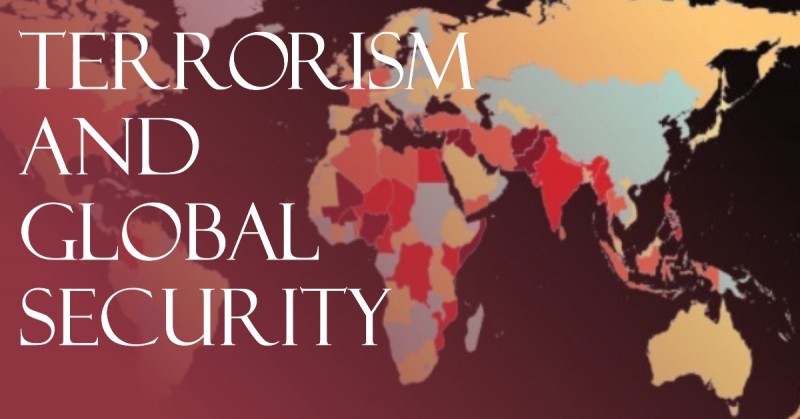
In today's world, terrorism poses a significant threat to global security. The rise of extremist ideologies, the proliferation of weapons, and the advancement of technology have made it easier for terrorist organizations to carry out acts of violence and destabilize nations. This article explores the complex relationship between terrorism and global security, highlighting the challenges faced by governments and international organizations in combating this menace.
Definition of Terrorism
Terrorism is a form of violence that seeks to instill fear, panic, and a sense of helplessness in a population. It involves the deliberate targeting of civilians or non-combatants to achieve political, ideological, or religious objectives.
Motives Behind Terrorism
Terrorist organizations are driven by various motives, including political grievances, religious extremism, separatism, and socioeconomic factors. These motives can vary significantly based on the region and the specific group involved.
Early Acts of Terrorism
Terrorism has a long history, with early examples dating back centuries. From assassinations to acts of sabotage, terrorists have employed various methods to achieve their goals.
Modern-Day Terrorism
The face of terrorism has evolved in recent decades. The emergence of global networks and the increased accessibility of weapons have amplified the scale and impact of terrorist attacks.
Economic Consequences
Terrorism disrupts economies by damaging infrastructure, discouraging foreign investment, and causing significant financial losses. The cost of counterterrorism measures further burdens governments and international organizations.
Social and Psychological Effects
Terrorist attacks create an atmosphere of fear and mistrust, affecting societal cohesion and mental well-being. Communities may become polarized, leading to increased social tensions and discrimination.
Intelligence and Surveillance
Effective intelligence gathering and surveillance play a crucial role in preventing terrorist acts. Coordination between security agencies and international cooperation in information sharing are essential components of successful counterterrorism efforts.
Border Security and Immigration Policies
Strengthening border security and implementing robust immigration policies are essential for preventing the movement of terrorists across national boundaries. This includes thorough screening processes and international cooperation on border management.
International Cooperation
Terrorism is a global issue that requires collaboration between nations. Sharing intelligence, coordinating efforts, and providing assistance to countries facing significant threats are crucial in combating terrorism effectively.
Cyberterrorism
The digital age has given rise to new forms of terrorism, such as cyberterrorism. Attacks on critical infrastructure, data breaches, and the spread of extremist propaganda online pose significant challenges for global security.
Weaponization of Technology
Advancements in technology have also made it easier for terrorists to acquire and utilize sophisticated weapons, including drones and chemical agents. This poses a grave threat, as it enables them to inflict mass casualties and carry out attacks with greater precision.
Countering Extremist Ideologies
Efforts to combat terrorism must address the root causes, including the spread of extremist ideologies. Promoting education, interfaith dialogue, and community-based initiatives can help undermine the appeal of radicalization.
Community Engagement and Empowerment
Empowering local communities to take an active role in preventing terrorism is crucial. This involves fostering trust between communities and security forces, promoting social integration, and addressing socioeconomic disparities.
Middle East and North Africa
The Middle East and North Africa have been severely affected by terrorism due to ongoing conflicts, political instability, and the rise of extremist groups. The region serves as a breeding ground for terrorist organizations, posing a significant threat to global security.
South Asia
South Asia faces complex security challenges, with terrorist groups exploiting political tensions and religious divides. The presence of these organizations in the region poses a threat not only locally but also globally.
Sub-Saharan Africa
Terrorism in Sub-Saharan Africa has surged in recent years, primarily driven by Islamist extremist groups. Factors such as poverty, weak governance, and ethnic conflicts contribute to the spread of terrorism in the region.
United Nations
The United Nations plays a central role in coordinating global counterterrorism efforts. It facilitates dialogue, provides technical assistance, and implements resolutions aimed at preventing and combating terrorism.
NATO
NATO actively contributes to counterterrorism efforts through intelligence sharing, capacity building, and military cooperation. The alliance strengthens the collective defense of its member states against terrorist threats.
Interpol
Interpol acts as an international police organization, facilitating collaboration between law enforcement agencies worldwide. It plays a vital role in sharing information, coordinating investigations, and apprehending terrorists.
Ethical Dilemmas
Efforts to enhance security often raise ethical dilemmas, particularly regarding the balance between individual liberties and collective safety. Striking the right balance is essential to avoid infringing upon civil rights and maintaining public trust.
Surveillance vs. Privacy
The use of surveillance technologies in counterterrorism raises concerns about privacy infringement. Stricter regulations and oversight mechanisms are necessary to prevent the abuse of surveillance powers while ensuring effective security measures.
Emerging Threats
As technology advances, new threats may emerge, such as bioterrorism, artificial intelligence-enabled attacks, or the use of unmanned aerial vehicles for terrorist purposes. Constant adaptation and innovation are required to stay ahead of these evolving threats.
Disruptive Technologies
Technological advancements can both aid counterterrorism efforts and pose challenges. Embracing technologies like big data analytics, machine learning, and blockchain can enhance security, but they also require proactive measures to prevent misuse.
Conclusion
Terrorism remains a grave concern for global security. Addressing this multifaceted issue requires comprehensive strategies that encompass intelligence gathering, international cooperation, community empowerment, and the prevention of radicalization. By implementing effective counterterrorism measures while safeguarding civil liberties, the international community can work towards a safer and more secure world.
Sweltering Heat Alert in these States till June 20: IMD
Top Institutes of India for Fashion Designing
Report: OPPO Reno Pro+ variant cancelled, Find X6 with Snapdragon 8+ Gen 1 on the way